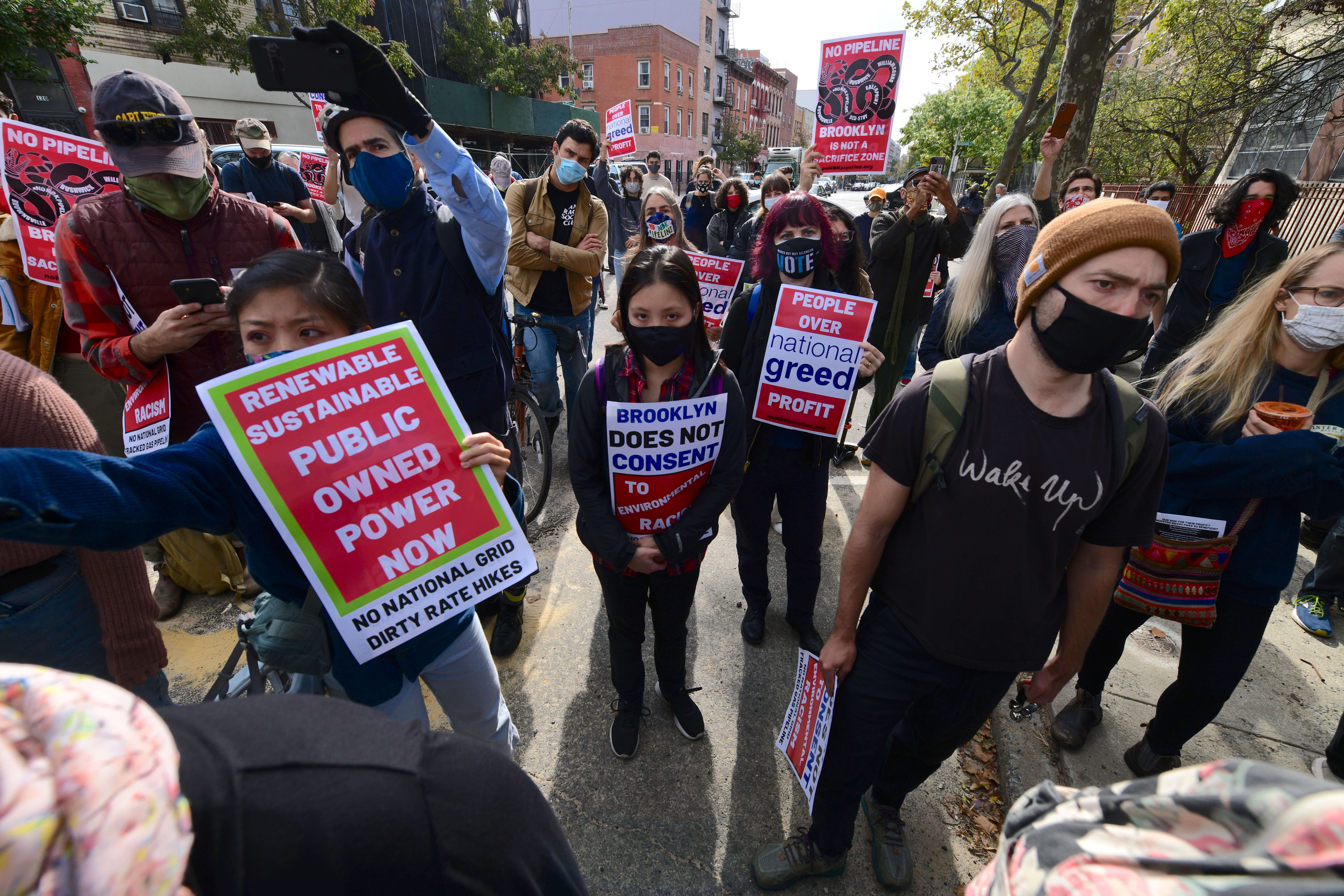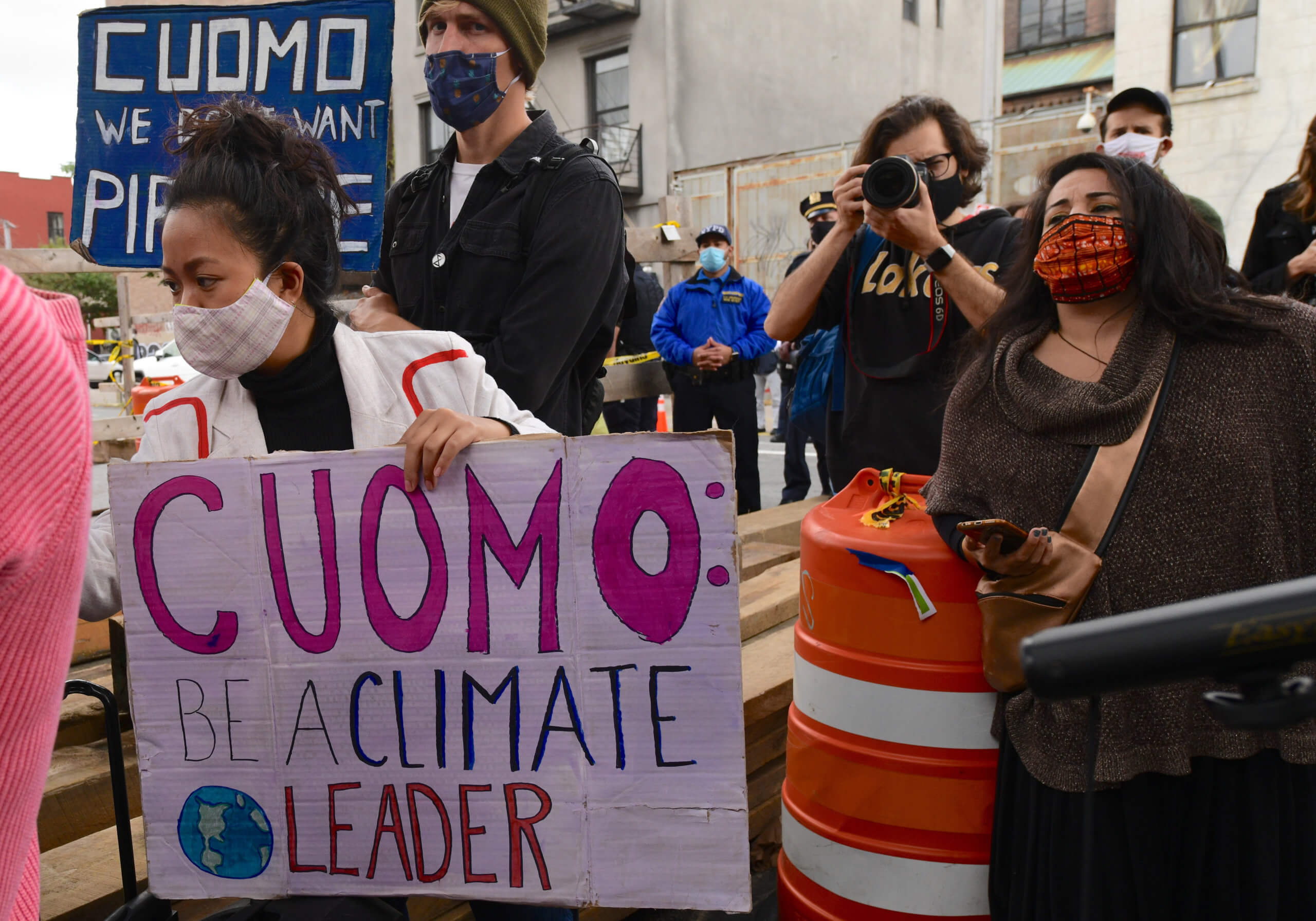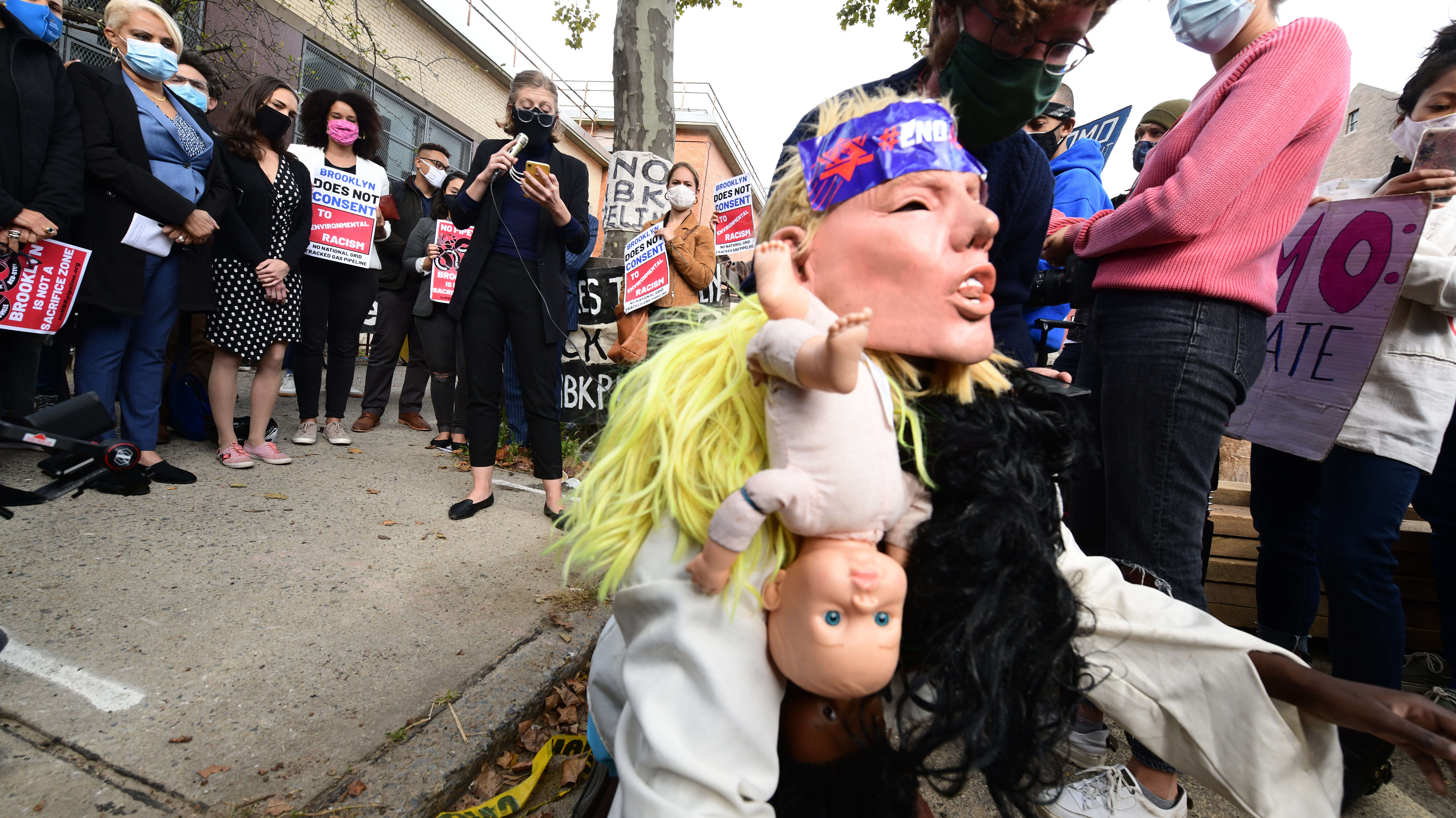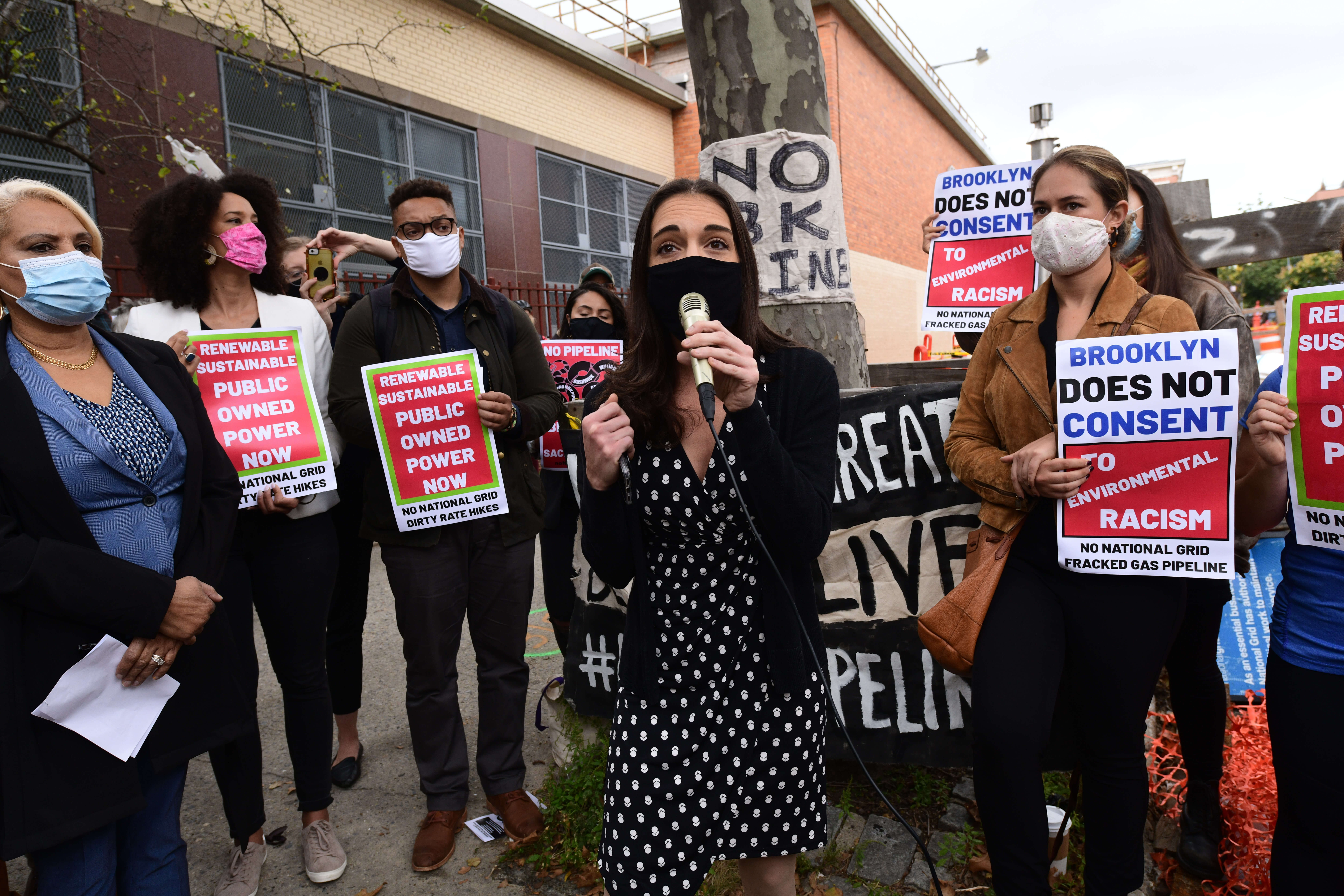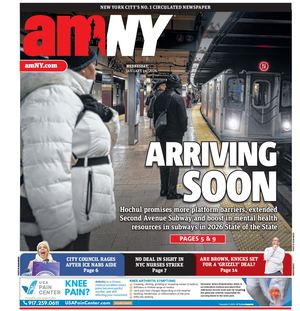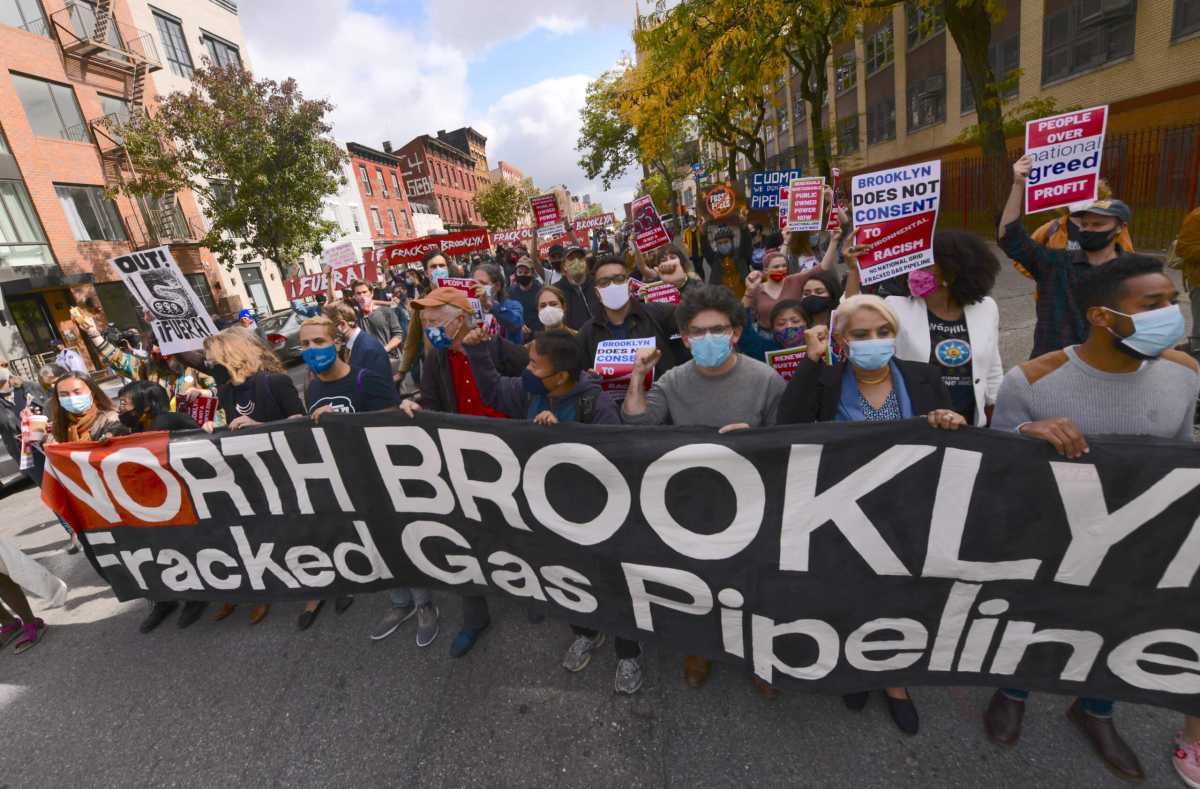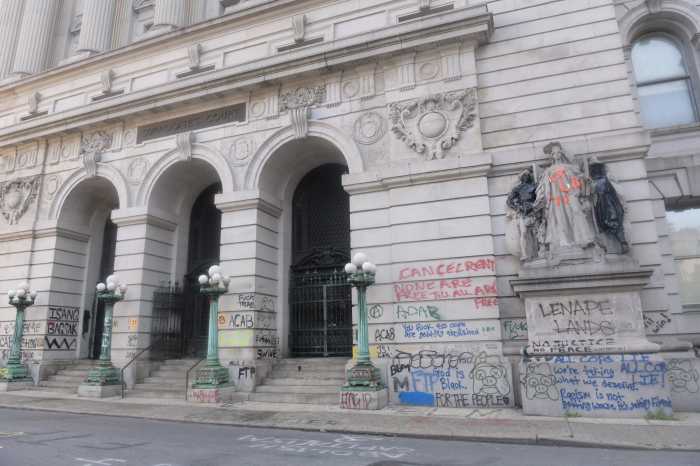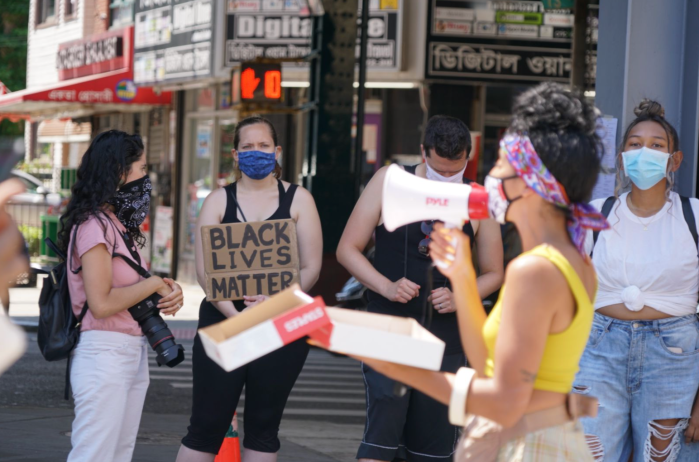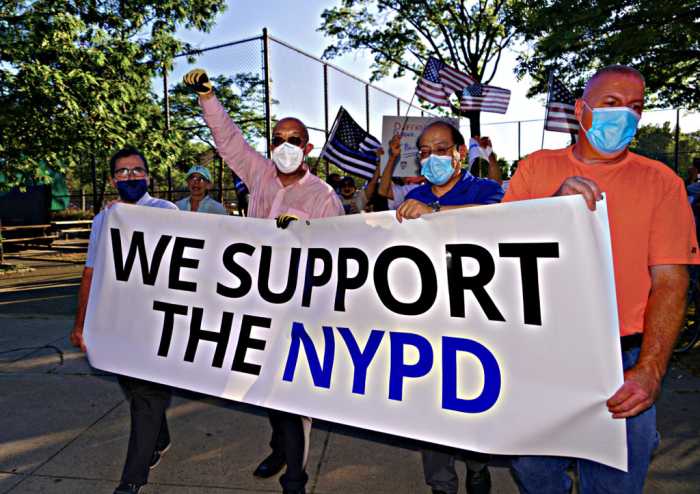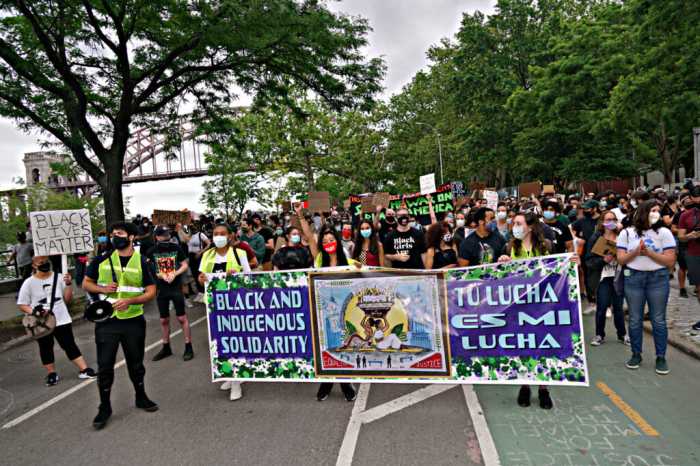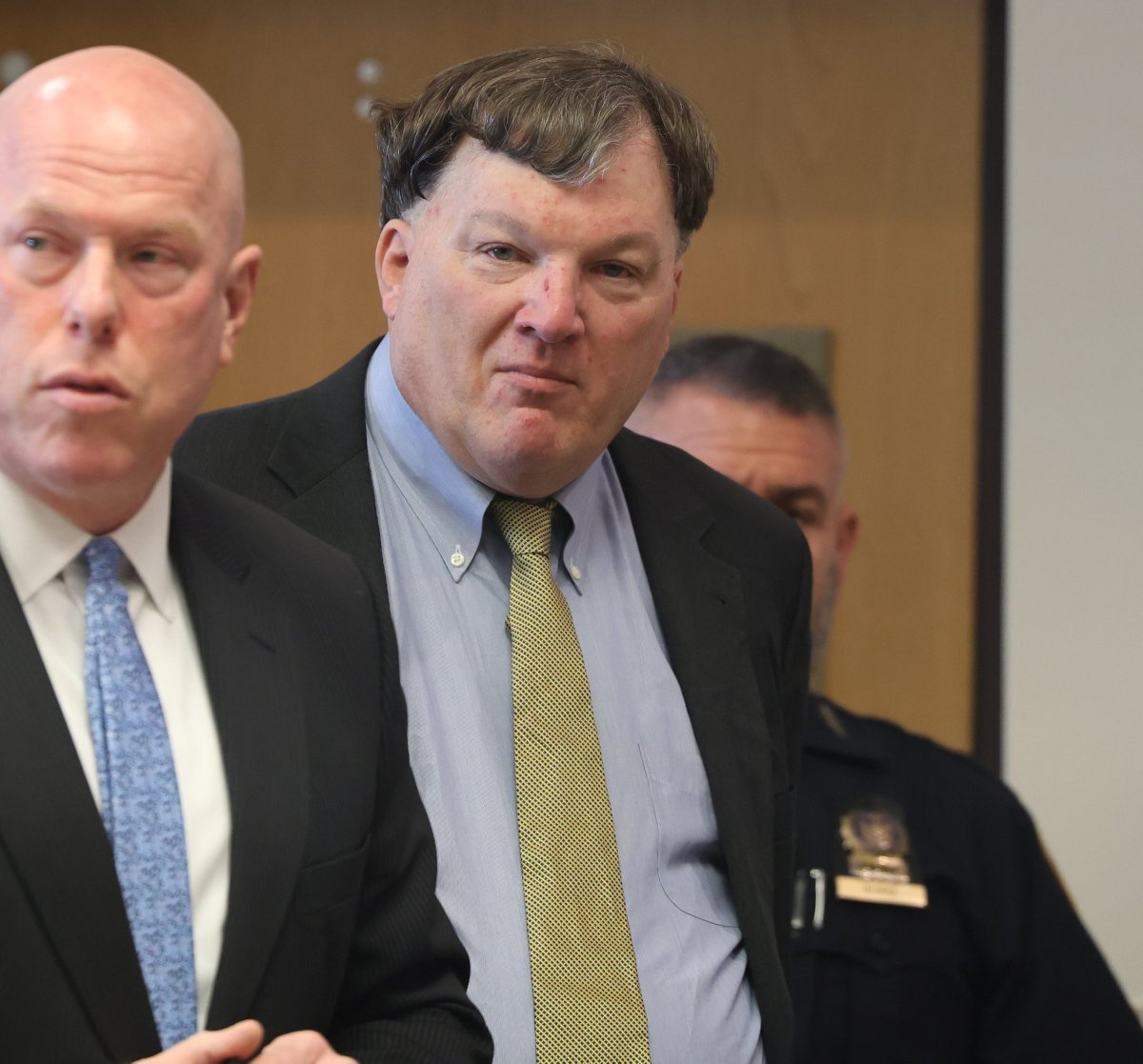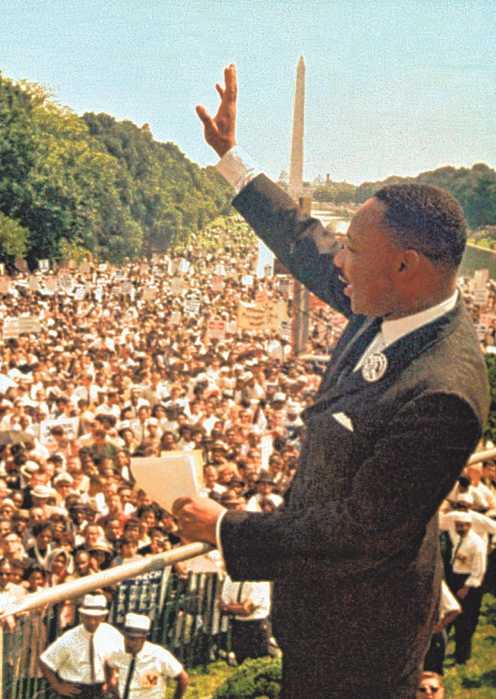Brooklyn elected officials joined protestors on Monday in opposition to the continued installation of a gas pipeline in East Williamsburg that they say is imperiling communities with ‘fracked gas’ designed to service homes and businesses.
Last week, protestors from the Sane Energy Project and an amalgamation of different anti-pipeline groups stopped construction of a gas pipeline on Montrose and Manhattan Avenues, which opponents say would bring “fracked gas” from Pennsylvania to the city. They contend that fracked gas is “unnecessary and contributes to greenhouse gases and present a danger to the mostly Black and Brown communities,” that the line runs through.
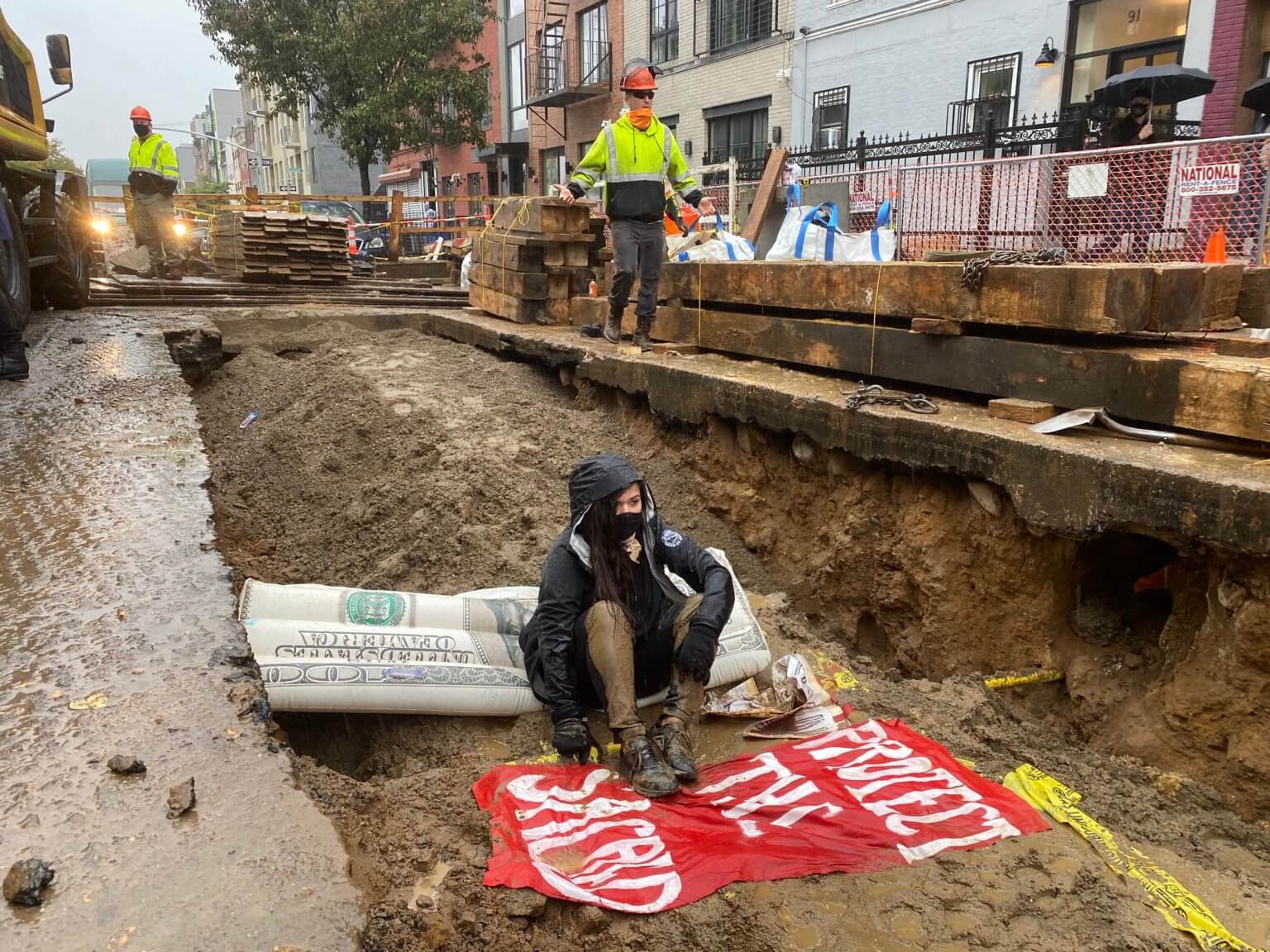
Among the elected officials joining Monday’s protest were Congresswoman Nydia Velazquez, Comptroller Scott Stringer, and a host of local leaders including State Senator Julia Salazar, Assemblywoman Maritza Davila and Councilman Antonio Reynoso.
Each had their contributions to the opposition, with Velazquez supporting the Green New Deal and Stringer divesting much of the city’s fossil fuel investments (which ended up saving the city money as fossil fuel companies suffered depreciation in market value).
The state leaders announced support of legislation that hinders further infrastructure development for fossil fuel and in the council continued opposition to fossil fuel projects in favor of renewables that they say will be more rapidly developed if public pressure continues.
Last week, protestors were able to shut down construction when several people climbed into the excavation site and chained themselves to the pipe until police could not them free. Four people were arrested Oct. 15 in that incident. On Oct. 16, protestors entered the site and blocked workers from continuing the construction.
NatGrid warned that actions by the protestors around gas mains was dangerous and was a hazard to both the workers and the protestors themselves.
Officials contend that the pipeline was approved by the city in 2016 and they say is necessary to supply customers in Brooklyn with uninterrupted service, “not to provide a new supply of gas.” The utility currently provides gas for heating and stoves to 1.9 million customers in Brooklyn, Staten Island, part of Queens and Long Island.
Karen Young, vice president at NatGrid, said the “pipeline” is a misnomer, in that it does not provide a new supply of gas. Rather, the utility called it a “system integrity project” that “creates a looping system to make more flexibility in how we move supply around the system.”
“It’s been referred to as pipeline, but it’s called a system integrity project, not to bring additional supply, but it basically allows us to more efficiently service 1.9 mil customers – move gas around system, but it doesn’t bring additional – it’s gas we already have,” Young said. “It the reinforces system, so the analogy used is it’s like a highway – when you add a lane, it gives another way to move gas to avoid congestion.”
Most homes and businesses use gas for heating and cooking – many property owners switching over the years from much dirtier oil. Protestors seek to push utilities to renewable energy sources such as solar, wind and geothermal power (NatGrid has been experimenting with this), and away from all carbon based fuels that they say is contributing to global warming and respiratory illnesses.
Both Velazquez and Stringer looked to the future at new technology that will meet power needs while protecting the environment.
“The message is clear, global warming is real,” said Velazquez, calling on attendees to vote in the election to support their agenda. “When 3,000 Puerto Ricans lost their lives – when so many from Central America are forced to leave their countries but they can’t produce any more – you see what corporate America has done in those countries. And we shouldn’t invest in any infrastructure projects that contribute to climate change.”
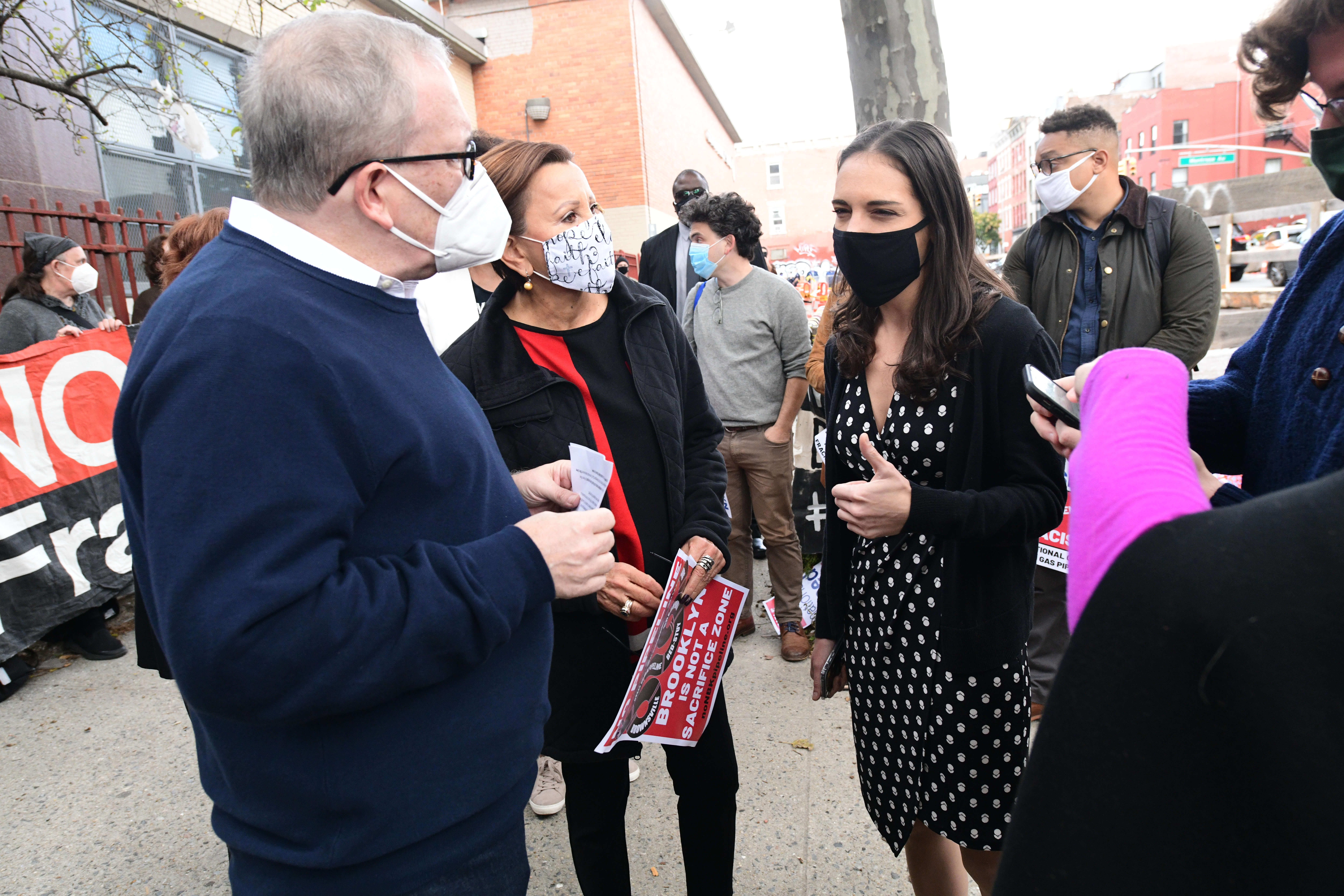
“Our children will ask us where we were when the battle was fought. They will ask us what did we do to alter this moment in America and around the country. All of you are throwing down because we do not have much time for ourselves and our children,” Stringer said.
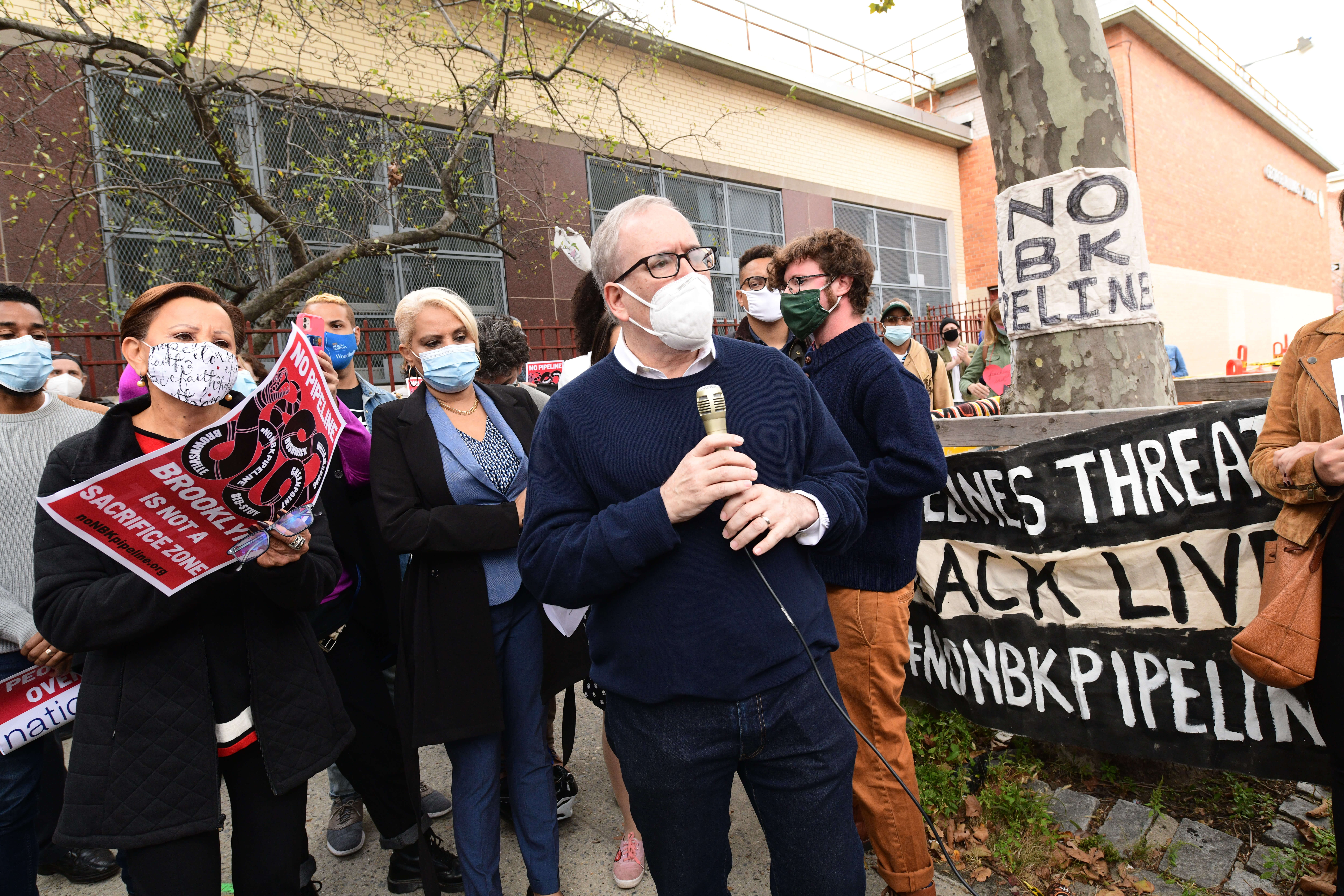
SSalazar said the new infrastructure, which critics say will cost ratepayers $180 million, “was not necessary.”
“This pipeline is not necessary to meet the needs of people who are on natural gas to heat their homes or using natural gas and NatGrid conceded that,” she said “That means transitioning out of natural gas so it is counter intuitive to be expanding natural gas when we shouldn’t be burning fossil fuels. Solar can be part of it, but there is also geothermal, wind energy, there are other options. Instead of investing in more natural gas infrastructure like this, we can be investing in alternatives like geothermal.”
Leaders of the Sane Energy Project vow to continue to disrupt the construction, even if police make arrests and they say they will return to this and other sites where construction is ongoing.
